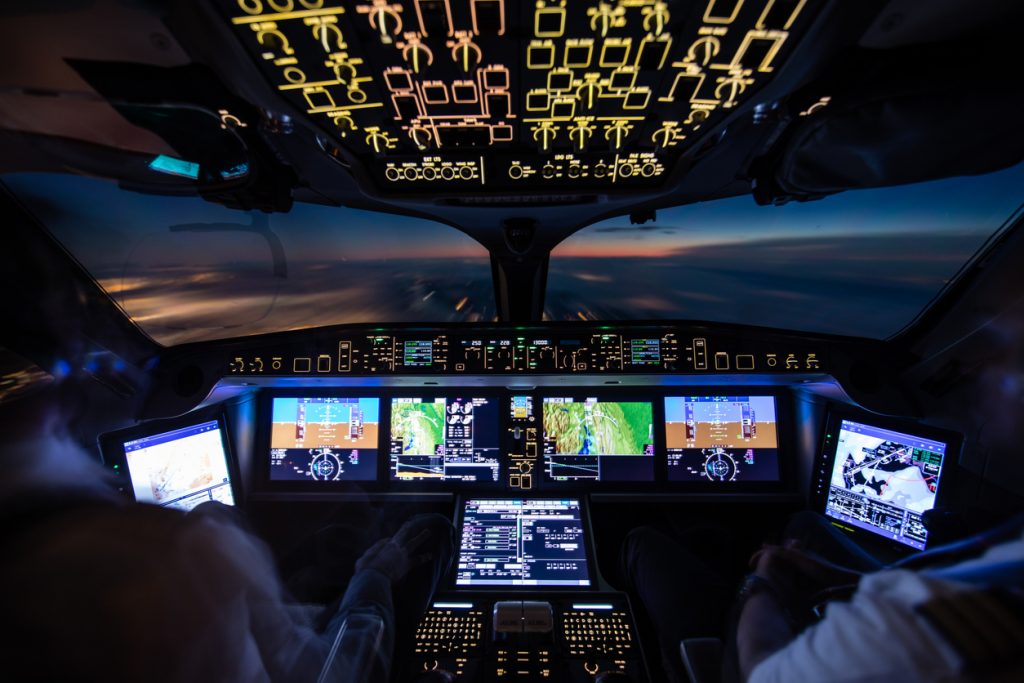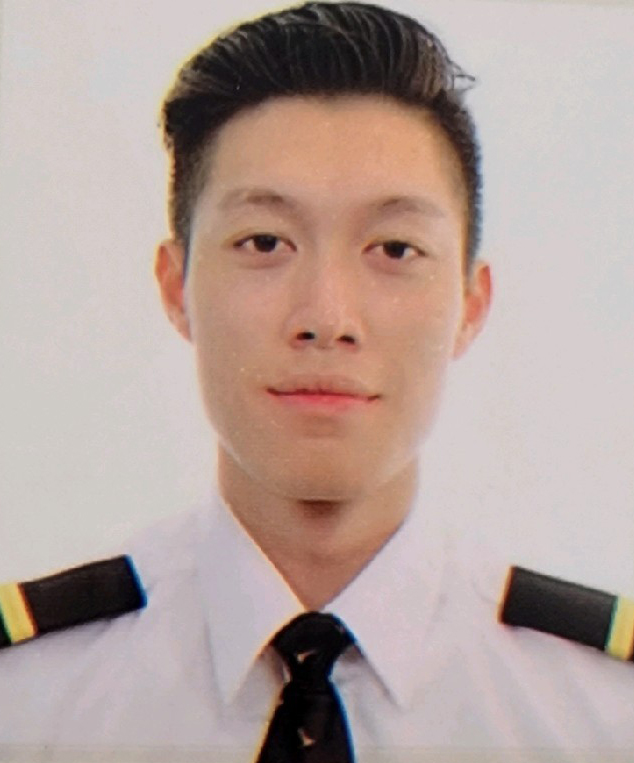BBA graduate pursues dream of being commercial airline pilot with Cathay Pacific
Oct 06, 2022

Leo Cheung, graduating this fall from SFU’s Beedie School of Business, will be pursuing his dream job as a Boeing 777 with commercial airline Cathay Pacific.
Of the career paths chosen by graduates of SFU’s Beedie School of Business, commercial airline pilot of a Boeing 777 might be one of the rarer ones.
Leo Cheung’s first love was always aviation. As a child travelling between Vancouver and Asia during summer holidays, he thought it would be cool to have a job sitting on the flight deck of a massive commercial aircraft. After all, not many individuals can have the bragging rights of flying an airplane with 300 passengers in the back. He started flying with the Royal Canadian Air Cadets and was later accepted into the Cathay Pacific Cadet program, a fast-track course that came with an Airline Transport Pilots License and a job at the end of successful training.

Leo Cheung
“I actually had to fly back to Hong Kong right after an ECON 105 midterm to do my interview at Cathay the next day in 2018,” recalls Cheung. Cheung will be graduating from SFU Beedie this fall with a bachelor of business administration concentrating in finance and marketing.
With his aviation background, he understood that many pilots risk losing their jobs not only over economic downturns, but also when they become physically unfit to fly. Cheung chose to pursue business as an alternate career path that could both support his flying career while also providing him with another appealing option based on his other interests outside of aviation.
“I chose finance because of my interest in trading stocks, and because I wanted to learn the proper financial modelling techniques taught by professors at SFU Beedie who have worked professionally in the industry,” says Cheung. “Finance is a quantitative aspect needed in every business.”
He was also interested in marketing, due to his interest in potentially becoming a business owner one day when he’s no longer able to fly. “I believe that marketing is one of the most powerful tools in business in terms of expressing the value of your business to your target segments,” says Cheung.
Cheung, who experienced the full effects of the COVID-19 pandemic when he was laid off from his pilot job in 2020, decided to come back to SFU Beedie and continue pursuing his business degree—and he considers this one of the best decisions he has made.
“What made me pursue a business degree was the fact that it could open many doors to other career paths I wanted to explore,” says Cheung. “I’m not going to fly forever, and I believe that you need alternative options for wherever life takes you. I would love to own my own business when I lose my ability to fly.”
During his time at SFU Beedie, Cheung explored academic and professional experiences. One of the highlights was his co-op position with the Canada Revenue Agency (CRA). There, he met many like-minded professionals who guided him through a new work environment and taught him the importance of pursuing higher education—many promotion opportunities at the CRA were contingent on prior education in accounting and related concepts.
“My experiences at SFU Beedie taught me a lot of proper workplace guidelines and soft skills,” says Cheung. “I found the workshops really helpful in teaching me the lingo used in an office workplace setting.”
Cheung, who is currently based in Hong Kong, will be starting his dream role as a Boeing 777 pilot with Cathay Pacific after his graduation from SFU Beedie. Asked what it’s like being a commercial airline pilot, Cheung explains that the Boeing airplanes are “actually not that easy to fly.”
“The autopilot does not do everything for the pilot—though I wish it did,” says Cheung. “As an international airline pilot, the job can come with unusually long hours and short periods of extremely stressful in-flight situations. But the cockpit work environment for my fleet is very welcoming as my colleagues are all very kind and willing to share tips with me that make my work a lot easier.”
Cheung also explains that in periods of extreme stress, pilots may develop “tunnel vision syndrome (TVS)” in which your mind will shut down and possibly make irrational decisions. He emphasizes the importance of sharing and communicating your thoughts with those around you as it will not only relieve your mental burden, but also give you fresh perspectives on tackling an urgent problem.
“I have had TVS many times during flight training and being given an in-flight simulated emergency situation,” says Cheung. “I was taught to always communicate with the other crew members rather than trying to fix things yourself. Just as in other areas of life—when deadlines and exams, for example, all converge—it is important to seek support. You are never alone in a bad situation.”
